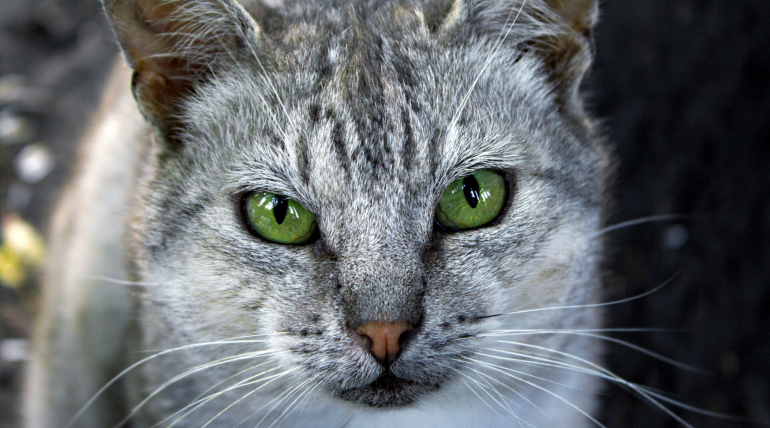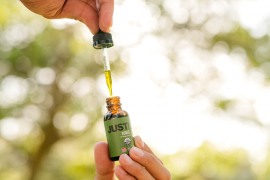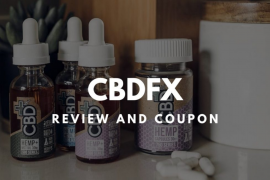Cannabidiol (CBD) and other cannabis-derived phytocompounds are proving to be quite therapeutically beneficial. CBD is a holistic alternative that works with our own body’s endocannabinoid system (ECS) to help our body heal from the inside out.
Every person and pet possesses an ECS. While dogs have more CB2 receptors than other mammals, why our bodies come equipped with one is relatively the same. Think of your pet’s ECS as a molecular crime-fighting team.
Whenever your pet falls ill or gets injured, this tiny built-in security force jumps into action to monitor, protect, and to react to potential threats. CBD may be derived from the same plant that produces euphoria-producing THC, but it has its own beneficial properties that are not psychoactive.
Your pet also produces its own cannabinoid receptors. Today, the most common studies are CB1 and CB2 receptors. They send signals from different areas and other systems in your pet’s body to its ECS. Then, the endocannabinoid receives these messages and acts respond accordingly.
For example, if your dog is developing red raised bumps on its skin, it may be having a reaction that was originally caused by a disruption in their digestive system. The red raised rash is only a sign of the issue, not the root cause.
By helping your pet restore body-balance and promote homeostasis from within, your pet can live a healthy and happy life without the use of prescription painkillers.
CBD is one of many therapeutically beneficial cannabinoids derived from the cannabis plant. By using various extraction methods (supercritical CO2 being the cleanest) cannabidiol found in the trichomes (resin glands) of the plant is separated from the plant matter and turned into oil formulations.
When cannabis was first put under the microscope back in 1964, research scientists were mainly focused on the psychoactive compound THC. It was the first isolated and characterized cannabinoid that brought cannabis to the forefront of scientific research.
Cannabis has been used to treat aches, pains, and discomforting symptoms for centuries prior to scientists stepping in. CBD is one of over 80 cannabis-derived cannabinoids that have been identified. Using cannabinoids together instead of separately is is more effective, but THC-rich products may not be ideal for our furry friends.
Instead, those using CBD oil for their pets opt for CBD-rich or CBD isolate oils as opposed to a full-spectrum oil.
If the CBD oil you are using on your pet has less than 0.03% THC present, you can be sure your pet will not get high. CBD oil has been used to treat stress, anxiety, back pain, and is known to promote optimal body wellness from the inside out.
Pets who suffer from severe medical conditions like seizures are also seeing an improvement in their symptoms after their owners began to incorporate CBD into their daily regime.
How Does CBD Benefit Your Pet?
Just like CBD in humans, we have quite a ways to go before we can factually say that CBD possesses an array of benefits. What we do know is that real people and real pets are seeing real results by using CBD.
Whether its reducing stress and anxiousness or calming painful bouts of swelling and achiness, one thing we can agree on is that a holistic solution that doesn’t cause liver or kidney damage after long term use is something to look into, right?
Scientific research is showing that CBD can effectively reduce skin irritations, improve gastrointestinal health, minimize swelling, and promote homeostasis in our pets.
The American Kennel Club may say there are no formal studies conducted on how effective CBD, but there are clinical studies and anecdotal evidence published on many reputable scholarly websites.
The fact is, our alternatives to health-care are NSAIDs ( Advil) and opioids (Tylenol). When your only solution is drugs that cause damage to vital organs with long-term use, CBD seems like a ray of light in a dark place.
Because science is very much still in its infancy regarding cannabinoids and its potential therapeutic effects in our pets, we are not allowed to say for sure that it can alleviate, treat, or cure a diagnosable disease. I use the words can’t say because the FDA has made it crystal clear that the health industry has to write complaint copy.
What I can say is that it may alleviate symptoms of:
• Physical Pain
• Anxiousness
• Sadness
• Stiffness
• Stomach Issues
• Skin Issues
• Onest of Old Age
Treating Your Dog With CBD
Because our pets are equipped with their own ECS, cannabinoids like CBD interact with these receptors that help regulate, monitor, and protect vital systems in their bodies. Your pet’s digestive system, nervous system, and other vital bodily functions are regulated monitored and controlled by its ECS.
We are just understanding that CBD can help our pet’s cannabinoid receptors (CB1 and CB2) fight off many unwanted symptoms like sadness, stress as well as physical aches, irritations, and stomach issues.
Joint pain is a major problem for dogs that are ageing. Well, it’s a problem for anyone who is ageing but for the sake of this article, we’re talking about dogs. Today the most common to aid our ageing friends is the same method we have: over the counter and prescribed pain medication like Advil and Tylenol.
Anxiousness and stress is another common issue among dog owners. Whether your dog is left for a few hours while you run shopping, or for only a split second as you load him in the back of the truck and walk to the front.
Both physical pain and mental symptoms like stress in dogs may be significantly reduced by incorporating CBD oil into your dog’s diet twice per day.
This study shows that CBD can be an effective pain treatment alternative that is safer and healthier than prescribed pain medication.
Treating Your Cat With CBD
Cats possess an ECS like other mammals, but unlike dogs, they have a lower count of CB2 receptors throughout their body. While we can’t say that this decreased presence of CB2 receptors affects how CBD interacts with your cat’s ECS, we can say that pet owners are seeing positive results when treating their feline companies with CBD.
Skin irritations that lead to itching and redness may be decreased when applying topical CBD pet creams in combination with an oral CBD oil. Gastrointestinal irritations, upset stomach, or lack of appetite may stem from an imbalance in your cat’s ECS.
the cannabinoids your cat’s body produces may need a helping hand to help your cat heal. By adding CBD oil to your cat’s diet twice daily, you are helping your cat’s body help itself.
Treating Your Horse With CBD
Cannabidiol is proving to be quite the natural powerhouse when it comes to equine medicine. Horses can promote and enhance mental, emotional, and physical health for horses who suffer from pain, stress, anxiousness, stiffness, or have digestive irregularities.
CBD works on your horses’ body just like its own cannabinoids would. CBD gives your horses’ ECS a helping hand, which in turn helps your horse heal from unwanted symptoms.
Because science is still very far from understanding the truly beneficial effects of CBD and other cannabinoids, we have to go by anecdotal results. That just means, our information comes from people who have used a high-quality CBD to help heal their horse, and who have seen effective results.
Because cannabis compounds like CBD help our ECS, a high-quality CBD oil can help your horse ease unwanted health conditions like stiffness, swelling, pain, stress, and anxiousness.
The endocannabinoid system in all mammals monitors and regulates our gastrointestinal system, nervous system, heart, skin, brain, and so much more. The wonders of cannabinoids are that they work very similar to the way CB1 and CB2 receptors function.
How Do I Treat My Pet With CBD?
When it comes to giving your pet CBD, oral administration of a premium CBD oil or edible dog treats are the most common methods of consumption.
What you should look for in a CBD company before you purchase is how the CBD was grown, cultivated, and extracted. The company should also be providing you with a batch number and accompanying batch test results, and you should look for a brand that has 100% transparency.
CBD is all over the place. Because there is a severe lack of regulation regarding this supplement, it’s very much like the wild wild west. When it comes to your pet’s health you want to give them the safest, most effective product available.
Look for a company that uses cannabis-derived CBD and not hemp. Be sure that the THC concentration is less than 0.03%.
Cats and dogs with aching joints, stiffness, or with minor skin irritations my benefit from incorporating a CBD-rich topical product like lotion or salve. Because topical products do not penetrate all seven layers of skin, it is best to use this method along with an oral CBD pet treat or oil.
You are looking for certified organic CBD products that are designed and formulated specifically for pets. Avoid using a CBD-rich lotion or salve if the company does not disclose batch numbers and corresponding lab results for that batch.
Just like human children, we want to protect and help our pets when they fall ill or injure. By sourcing a CBD-rich product that follows these simple guidelines, you take confidence in knowing the product you are using is not only safe, but it is also effective.
For those finicky pets that won’t allow you to put medicine straight in their mouth or those foodie pets that stick up their nose to anything that doesn’t taste good, CBD pet treats are your go-to option.
Pet treats come in tantalizing flavors like bacon, so giving your pet its daily dose of CBD comes without fuss. Some people say a pet treat is less effective than CBD oil itself. That’s not necessarily true.
It is the quality of the CBD oil that is in the pet treat or CBD oil that makes or breaks a product. Knowing where the brand sources its CBD, how the CBD is extracted, and how they manufacture their CBD products are the most important pieces of information.
Using a reputable CBD pet treat brand that’s mission is to help pets heal themselves naturally is will give you peace of mind, and it will also provide your pet with the natural relief of pain, swelling, skin irritations, and anxiousness.
CBD Oil can be added to your pet’s existing food and treats, or it can be given to your pet orally without the need of food. This method of consumption may take some trial and error when it comes to ideal dosing sizes.
Keeping track of what time and how often you give your pet CBD is important. A CBD journal can be helpful to keep track of how your dog felt after consumption, how frequently they are taking CBD, and how much CBD is used.
Dosing typically goes by weight and concentration level. Because each CBD oil company is different, following the directions on the label is a good starting point.
A premium CBD oil for pets will come with a batch number and lab-test results that show purity levels, cannabinoid potency, as well as trace compounds analyzation. Meaning, if there are any trace amounts of heavy metals, herbicides, or pesticides present, these lab tests will provide you with the data you need to make an informed decision for your pet.
CBD for Pets Dosage Guidelines
There are three important factors that play a vital role in how a CBD dose will affect your pet:
• The size and weight of your pet
• The reason your pet is using CBD
• The cannabinoid potency of the CBD oil or treat
Keeping these factors in mind along with following the advice of your get will help you give your pet the best CBD experience. If your pet has a low activity level, it may take longer for him/her to metabolize CBD.
Source a premium CBD product that has a batch number, third-party lab results, and free of residual compounds that may be harmful like heavy metals and pesticides. Not all CBD products are made equally. Hemp-based CBD-rich products that come from overseas have the possibility of being created with highly toxic industrial-grade hemp that may cause more harm than do good.
How Much CBD Oil Should I Give My Pet?
The general rule of thumb for both humans and pets that are starting their CBD journey is start low, go slow. Starting with a small dose and gradually increasing it is the safest way to calculate your pet’s ideal CBD dose.
Follow the CBD manufacturer’s guidelines on the label. A reputable CBD vendor will provide detailed instructions on how to use their products effectively.
Calculating CBD doses takes some simple math skills and some experimentation. If you are planning to treat physical aches and pains like stiffness and achiness, you need to figure out how many milligrams your pet should take per dose based on how much they weigh.
If this is your first rodeo, start with 0.2mg of CBD/ per lb. If your pet is 50lbs, you would give them 10mg of CBD.
The next step is to figure out how many milligrams (mg) of CBD are in every millilitre (ml) of the CBD oil you purchased. While every product and manufacturer varies, the most common CBD concentrations we’ve seen address both minor ailments with extracts at 75mg of CBD we well stronger extractions near 600mg CBD for more serious ailments.
75mg CBD oil: 2.5mg CBD/per 1ml
300mg CBD oil: 10mg CBD/per 1ml
600mg CBD oil: 20mg CBD/ per 1ml
Pro tip: Your pet’s ECS and medical issues are unique, so no two pets may experience the same outcome. Utilizing the therapeutic benefits of CBD comes to wit a lot of experimentation in the beginning.
Find your pet’s ideal dose based on their needs. Cannabinoids give a helping hand to cannabinoid receptors your pet’s body creates.
Alternatives to Manual Calculation
If you want a reliable, convenient, and effective alternative to measuring your pet’s CBD oil twice per day, try capsules or dog treats instead.
CBD-rich pet treats are available for cats, dogs, and some companies offer treats for horses as well. CBD capsules are like a treat in that each CBD dose is accurately calculated and measured into easy to understand serving sizes.
They are different in the sense that you would be mixing CBD capsules into their food whereas a CBD-infused treat is a food itself.
Potential Risk of using CBD Oil
The most frequently reported downsides of incorporating CBD into your pet’s therapeutic regimen is drowsiness. Very few pet owners reported their animals became nauseous and even less say their animal reacted negatively or felt anxious after consuming CBD oil.
The Future of CBD for Pets
Finding your pet’s ideal CBD dose, and the best product that will get to the root cause of their issues might take a little time, but with a little patience you will figure it out. Helping your pet restore mind/body balance is just as vital is maintaining your own.
Finding a reputable CBD company that puts your pet’s health and wellbeing first, and that stands behind their products with transparency like third-party lab results should be priority number one.
If you’re considering CBD for your pets, but you don’t know where to start, simply read a company’s verified reviews. These are customers that have purchased the product already and left their options and thoughts about their experience.
Having a pet should mean spending time with them and living a full life together. CBD may be the holistic solution that may boost your pet’s overall well being and promote homeostasis giving them the ability to be the cherry, happy, and playful companion you know they are.
There are many therapeutic benefits CBD is proving to possess. With the biggest risk associated with it is tiredness and the most common effects are homeostasis, it may be worthwhile to give it a try.
Our pets have their own ECS and create their own cannabinoid receptors, CBD helps their body heal itself. If you have any questions about CBD, please leave them down below. And as always, stay lifted!







